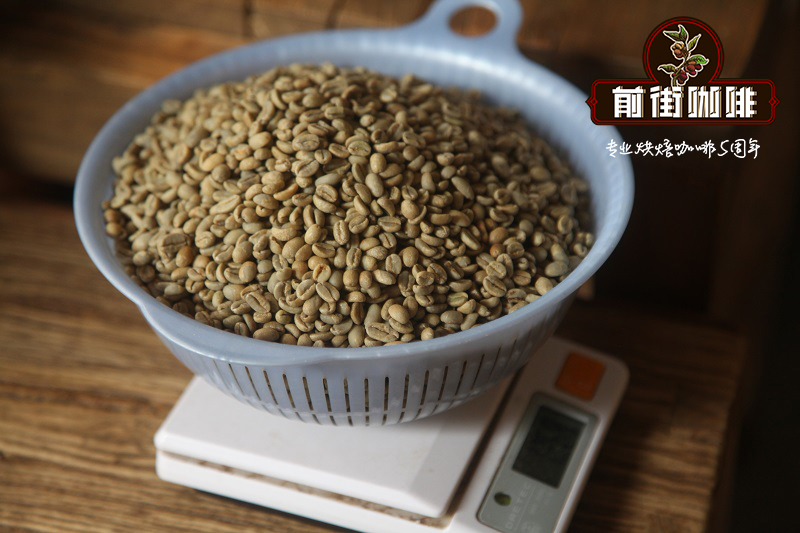How about the washed bourbon on the Argentine farm in El Salvador? the farmer Ale shares his planting ideas.

Country: El Salvador (Salvador)
Region: Ahuachap á n
City: Ahuachap á n
Farm: Argentine farm
Farmer: Alejandro Martinez
Altitude: 1300 m
Variety: bourbon
Processing method: washing
Farmer Ale, who had been a city banker until he moved to El Salvador from New York in 2008, became involved in the coffee industry.
While looking for a job in El Salvador, Ale decided to help his father with some business activities and investments. His father inherited several coffee farms from his grandfather and was not sure what to do, and one of the investments pierced the intentions of Ale, a farm called Finca Argentina. What really caught Ale's attention was that he saw that the farm had produced a lot of coffee, but only a fraction of the old coffee. His father allowed him to see what to do to make the farm successful again.
Ale found that the farm was classified as a Q auction in 2005. He and his cousin (who lives in London) thought there might be professional buyers there, so they sent the samples to the coffee roaster as much as possible.
Since then, Argentine farms have grown, but not plain sailing. In 2013, they suffered the worst harvest ever, with only 70 bags due to severe leaf rust. But through investment and effort, they also bought a nearby farm, and for Ale, his father, his family and Finca Argentina, the future is bright.
The farm is located in the Apaneca-Ilamtepec Mountains, near the town of Turin in the Ahuachap á n department. During the off-harvest season, 16 people work on farms, maintaining and caring for plants. During the period of receiving materials, the number of workers can be increased by up to 50. The farm is 1300 meters above sea level.
Historically, small coffee beans are about 10% of coffee discarded after processing because they are smaller than normal size-in the past commodity era, the unity of sorting and classification was poor. This is the fastest manufacturing method unity is to classify the size of beans, and larger beans are considered to be the best.

On a well-picked and well-organized farm, petite and capable are better than their older siblings, and slightly different. Instead of mixing them with commercial coffee, they have the opportunity to add more value to producers when crops are scarce.
In the cup test, these little beans give out a sweet, bright and juicy punch! Limes and oranges work with green apples to create refreshing, delicious coffee.
Important Notice :
前街咖啡 FrontStreet Coffee has moved to new addredd:
FrontStreet Coffee Address: 315,Donghua East Road,GuangZhou
Tel:020 38364473
- Prev

How is the flavor of Javanese long beans in Finca Cerro Azul of Honduras? introduction to the Mieri family.
Country: Comagua City, Honduras: Segua Tepec Community: Rio Bonito Farm: Finca Cerro Azul Farm Manager: Francisco Escobar and Lidia Zeledon Farm owners: Mieriyui Family area: 135ha altitude: 1mine4501900masl Variety: Java long Bean processing method: natural Cerro Azul is the Mieriya family
- Next

Miyet Rizhao Lemon Tree Manor in Nicaragua introduces the deep fermentation sun red bourbon flavor?
Nicaragua Miyet Chateau Red Bourbon Deep fermentation Sun country: Nicaragua production area: Matagalpa (Matagalpa) altitude: 850-1150 m treatment: deep fermentation Sun Grade: SHG Variety: red bourbon Flavor description: bitter sweet chocolate, cream, cheese, fermented strong "Funky", from the creation of a special and delicious flavor spectrum
Related
- Detailed explanation of Jadeite planting Land in Panamanian Jadeite Manor introduction to the grading system of Jadeite competitive bidding, Red bid, Green bid and Rose Summer
- Story of Coffee planting in Brenka region of Costa Rica Stonehenge Manor anaerobic heavy honey treatment of flavor mouth
- What's on the barrel of Blue Mountain Coffee beans?
- Can American coffee also pull flowers? How to use hot American style to pull out a good-looking pattern?
- Can you make a cold extract with coffee beans? What is the right proportion for cold-extracted coffee formula?
- Indonesian PWN Gold Mandrine Coffee Origin Features Flavor How to Chong? Mandolin coffee is American.
- A brief introduction to the flavor characteristics of Brazilian yellow bourbon coffee beans
- What is the effect of different water quality on the flavor of cold-extracted coffee? What kind of water is best for brewing coffee?
- Why do you think of Rose Summer whenever you mention Panamanian coffee?
- Introduction to the characteristics of authentic blue mountain coffee bean producing areas? What is the CIB Coffee Authority in Jamaica?

